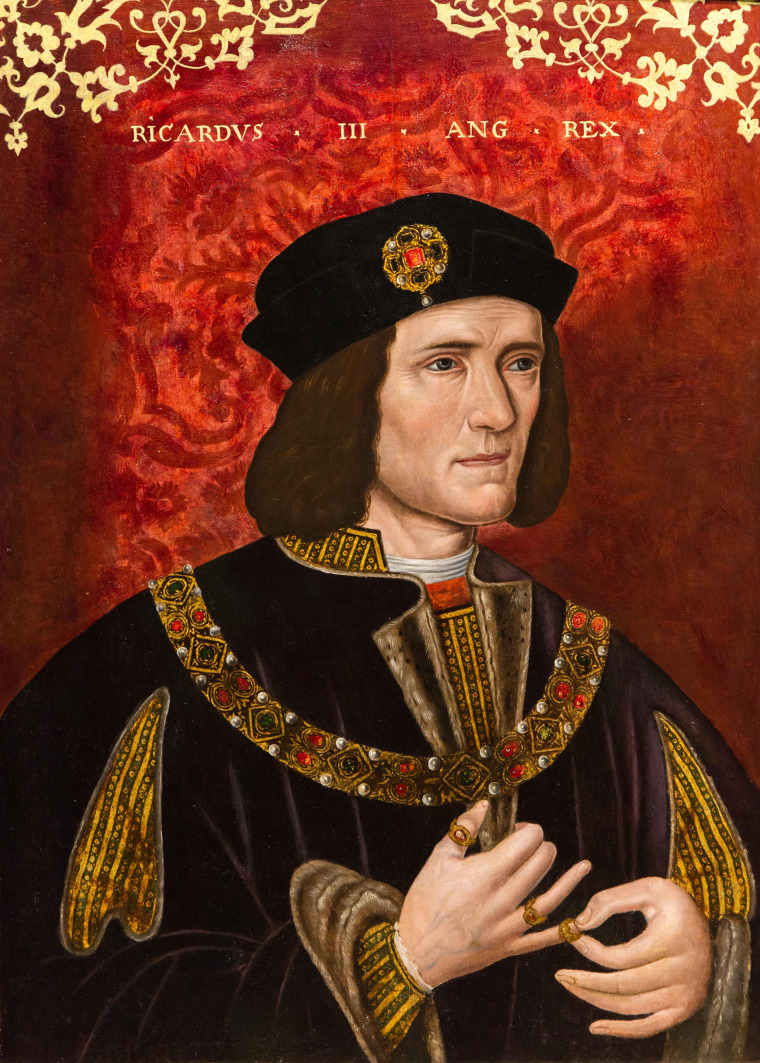State-of-the-art technology re-creates voice of King Richard III
LONDON — Britain’s King Richard III was immortalized with the Shakespeare line, “A horse, a horse, my kingdom for a horse.”
Now state-of-the-art technology has revealed what it may have sounded like if he did indeed utter those words just before his death in 1485 at the Battle of Bosworth.
Unlike the upper-class tones of his modern successors, the re-created king’s voice has a more common and earthy twang as he recites a medieval manuscript in a display that opened Sunday at the Theatre Royal in the U.K’s ancient city of York.
The project, which is 10 years in the making, was the brainchild of British vocal coach Yvonne Morley-Chisholm, who approached a team based at Face Lab at the U.K.’s Liverpool John Moores University and has since enlisted the help of leading specialists across a number of fields to create the avatar.
“That involved dentistry, physiotherapy, the craniofacial reconstruction, the original pronunciation, forensic psychology, all sorts,” she told NBC News in a telephone interview Monday, adding that it took them “10 long years” to put “the pieces together in the puzzle, because we wanted this to be based on evidence.”
It is the latest episode in the history of the doomed monarch, who was king of England for just two years from 1483 until his death two years later at age 32.
Just over 100 years later in 1592, Shakespeare vilified him as a hunchback, giving him the famous cry of despair about a horse as his last line. His body was later discovered beneath a parking lot in 2012.
To help work out how Richard and his contemporaries might have sounded, Morley-Chisholm enlisted the help of professor David Crystal, a leading linguist and expert in 15th-century pronunciation.
“Nothing like this has ever happened before,” Crystal said in a telephone interview Monday. “This is as close as we can get. It’s 90% or so accuracy.”
Crystal added that he created “the sound system” of the era by looking at the spelling of the words, the rhymes that were around in the poetry of the time and what Richard’s contemporaries wrote about the spelling and pronunciation of English.
The result, he said, “is not like any modern accent at all.”
“It has distinctive echoes of some modern accents, and the predominant echo was definitely Yorkshire,” he said, referring to the county in northern England known for its distinctive dialect.

Richard made global headlines 12 years ago when his skeletal remains were found by British historian Philippa Langley in a parking lot in Leicester, a city around 100 miles north of the U.K.’s capital, London.
CT scans of the skeleton have since helped scientists reconstruct his face and body, revealing that while he did have curvature of the spine, he was not the hunchback that Shakespeare portrayed.
“The skeleton has ruled out all the myths,” Morley-Chisholm said. “He did not have a limp, a withered arm, a hunchback. He was able to speak in public.”
“Without the discovery of his mortal remains, this project would not have been possible,” she added.
The skeleton also helped Morley-Chisholm find the actor that would eventually play the king’s avatar.
After 10 years of searching, she said she chose British actor Thomas Dennis because his face was such a good physical match. She then coached Dennis into the king’s accent and personality.
Langley was also involved in the project from the start, advising on Richard’s character and personality by studying letters, diaries and public descriptions of the king, and looking at how that might affect the way he speaks.
“What we could then get was a probability, almost verging on certainty, of the recognized character of Richard III during his lifetime,” she said in a telephone interview Monday. “You are seeing the most accurate portrayal of Richard III.”
Mathew Morris, a project officer at the University of Leicester’s Archaeological Services, who was involved in the dig 12 years ago but not part of the avatar project, said the project was “a brilliant step.”
“There is only so much you can learn from a skeleton,” he said Monday. “It is creating a resource that is allowing people to then explore less tangible facets of his life in new and innovative ways. You just don’t know what it’s then going to inspire.”
Meanwhile, Crystal said he was already imagining other famous faces and voices from the past being re-created.
“I think when people see it and hear it, then, you know, forget Richard. Who else can we do?” he said.




